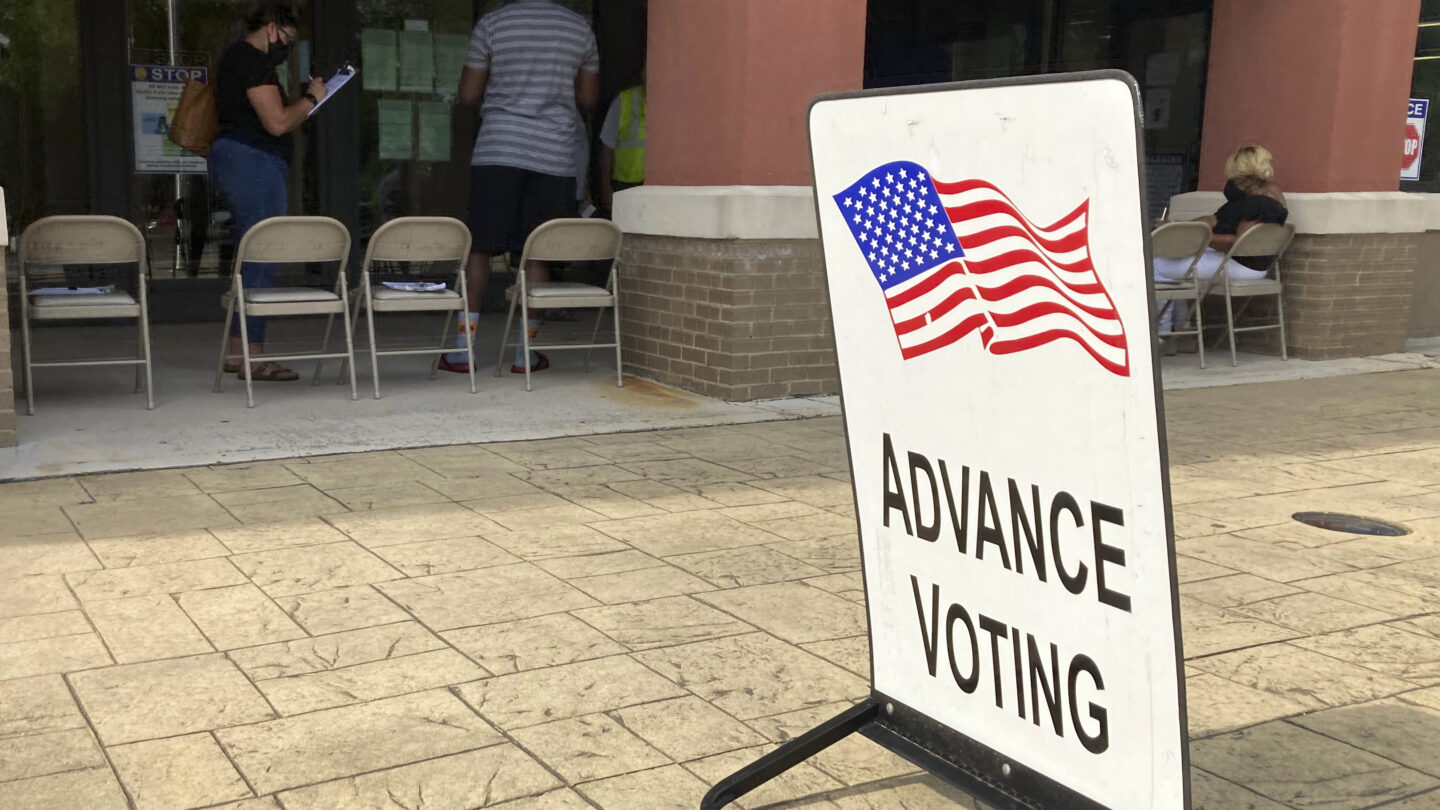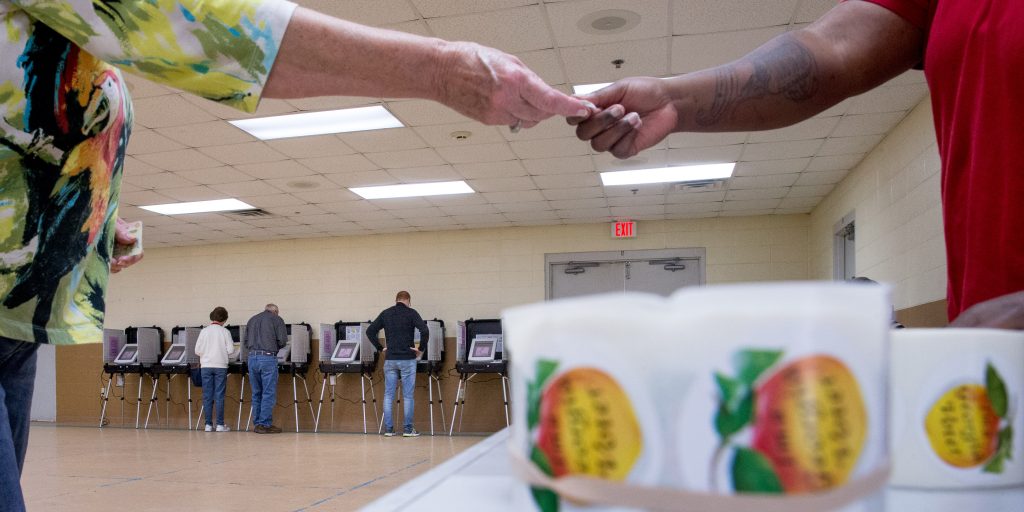Tuesday’s election in Georgia marks the biggest test yet of new voting restrictions enacted by Republicans in one of the nation’s most important battleground states as voters decide hotly contested primary races for governor and the U.S. Senate.
Election officials, poll workers and voters were navigating new rules put in place by the GOP-controlled legislature and Republican governor after the 2020 presidential election amid a concerted effort by former President Donald Trump to cast doubt on his loss with unsubstantiated claims of fraud.
They added restrictions to mail voting, limited drop boxes and changed rules that could make it harder for voters who run into problems on Election Day to have their ballots counted. That’s despite no evidence of widespread fraud that would have changed the results of the 2020 presidential election in Georgia, a state Joe Biden won by about 11,800 votes.
Voting groups were watching for long lines, voter confusion, problems with voting equipment or any other hitch that could hinder voters from casting their ballots.
Tuesday’s voting capped a record-setting early voting period in Georgia. Nearly 860,000 ballots had been cast through Friday, the majority of which were done in-person as opposed to mail. State election officials said the early turnout marked a 168% increase from the 2018 primary and a 212% increase from 2020.
Republicans have touted the early voting numbers as evidence that the Georgia law, known as Senate Bill 202, has not harmed voters.
“Once again, facts are disproving the left’s ‘voter suppression’ narrative,” said Jason Snead, executive director of Honest Elections Project Action, a conservative group that supports tighter voting laws.
Georgia was among three states, along with Alabama and Arkansas, holding regular primaries Tuesday. Texas has runoff elections for the GOP primary for attorney general and for a Democratic congressional seat, while Minnesota is holding a special primary for the seat of former Republican U.S. Rep. Jim Hagedorn, who died in February.
Georgia —- along with other states that have held early primaries — has seen a dramatic decline in the use of mailed ballots since the record numbers reported in 2020 at the height of the COVID-19 pandemic, when voters were seeking alternatives to crowded polling places.
Voting advocates said the new Georgia elections law has made it harder to request a mail ballot by shortening the period voters can apply for one and by adding new ID requirements to the applications and the ballot itself. Trump’s unsubstantiated attacks on mailed ballots also have taken a toll on voter confidence.
As of Sunday, about 64,600 mail ballots had been returned out of nearly 97,000 requested by Georgia voters. About 1,300 applications have been rejected for arriving past the new, earlier deadline, or 1.4% of all applications submitted. Those voters, if able, can still vote in person on Tuesday.
Texas primary voters in March were tripped up by new identification requirements, resulting in an abnormally high rate of mail ballot rejections. Lawmakers in Alabama and Arkansas also shortened the period for those requesting absentee ballots.










